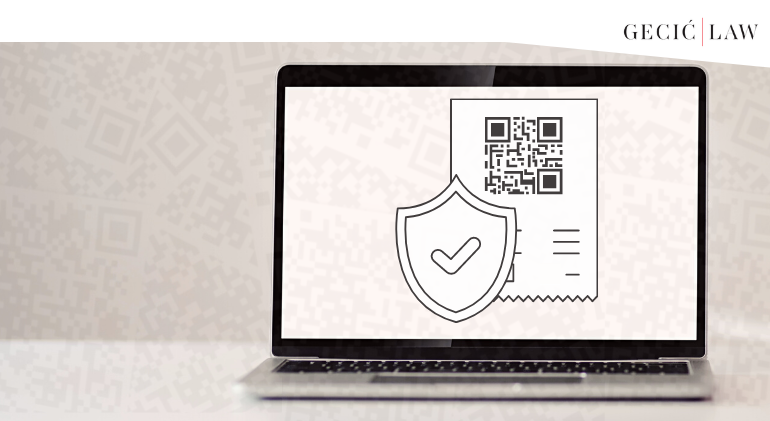

This year brought numerous changes to businesses in Serbia, and digitalization was particularly in focus. Instead of the Fiscal Cash Registers Act, Serbia now has the Fiscalization Act, which will start to apply on January 1, 2022 (the “Act“). Entities who have the obligation to record the turnover of goods and services in retail through the fiscal cash register are obliged to harmonize their business with the provisions of the Act by April 30, 2022.
The transition period began on November 1, so that taxpayers can now gradually adjust their businesses to the new fiscalization model. So, what does the new model of fiscalization bring?
According to the new Act, in addition to the turnover of goods and services, businesses must also record advance payments received.
The new model introduces the use of electronic fiscal devices, where the state will subsidize the purchase in the amount of 100 euros per point of sale and an additional 100 euros for each fiscal cashier device, starting October 15 this year. This would mean that, if a retail point of sale has three registered fiscal, the subsidy would amount to 400 euros . Applications for subsidies will last until January 31, 2022. Instead of the current fiscal cash registers with control paper tapes, it will be possible to use any electronic device which can connect to the Internet, and which has security elements approved by the Tax Administration. Taxpayers will have to use the security feature to sign fiscal receipts to verify their identity when exchanging information with the Tax Administration. The new fiscal receipts will contain a QR code, which the customer can scan and to check whether their fiscal receipt has been issued in accordance with the Act.
However, before starting to use an electronic fiscal device, the taxpayer must electronically submit to the Tax Administration information about the business premises where they will use the electronic fiscal device, for each point of sale. If one fiscal device enters the transition period, all fiscal devices used on the business premises must have the same status.
After applying the new devices, the taxpayer will receive an instruction – Introduction to fiscalization, and they will be able to request the creation of the security features for the devices they intend to use on the ePorezi portal (the security feature will be in the form of a card, or a software file).
When the security feature is connected to the device, it automatically connects with the Tax Administration. The old fiscal cash register will automatically be defiscalized as the new device is connected to the Tax Administration.
All self-employment income taxpayers and corporate income taxpayers who engage in retail trade now have the obligation to record any changes through the electronic fiscal cash register.
However, not all entities that fit the definition above are required to record their turnover. According to the new Decree on determining the activities in which there is no obligation to record retail trade through an electronic fiscal device (the “Decree“), and as was the case with the previous fiscalization regime, natural persons who are self-employment income tax payers and are not sole traders who sell their own agricultural products in green markets and similar facilities, do not have the obligation to record turnover through electronic fiscal cash registers. Entities that charge for goods sold or services provided by issuing bills containing a calculation of consumption (for instance, electricity, heating, water, etc.) do not have the obligation to record their turnover this way either.
Additionally, the Decree explicitly lists specific activities, including, inter alia, urban and suburban passenger land transport (49.31); taxi transport (49.32); activities in land transport (52.21); financial services, excluding insurance and pension funding (64); insurance, reinsurance and pension funding, excluding compulsory social security (65); activities auxiliary to financial services and insurance activities (66) and other.
The new model does not require neither the presence of a tax inspector nor that of a servicer for fiscalization and defiscalization. It also eliminates a lot of administrative work. Costs for taxpayers are expected to decline significantly. Furthermore, taxpayers will be able to receive financial support to transition to the new model. Finally, the new, more modern model, should contribute to combating the informal economy, one of the strategic goals of the Government of Serbia, due to real-time monitoring and a direct connection with the Tax Administration.